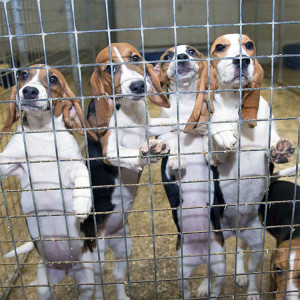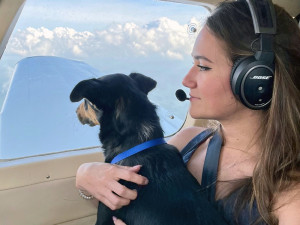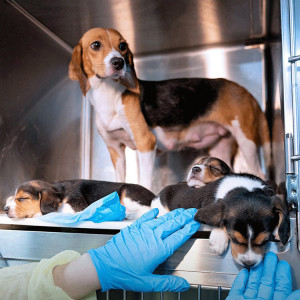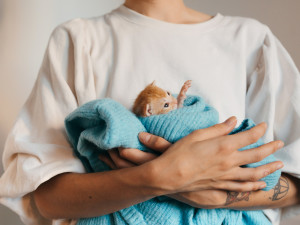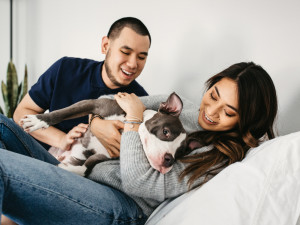Congress Orders the Department of Veteran Affairs to Stop Testing on Cats and Dogs
Under new legislation, all experiments on dogs, cats, and primates must end by 2026.
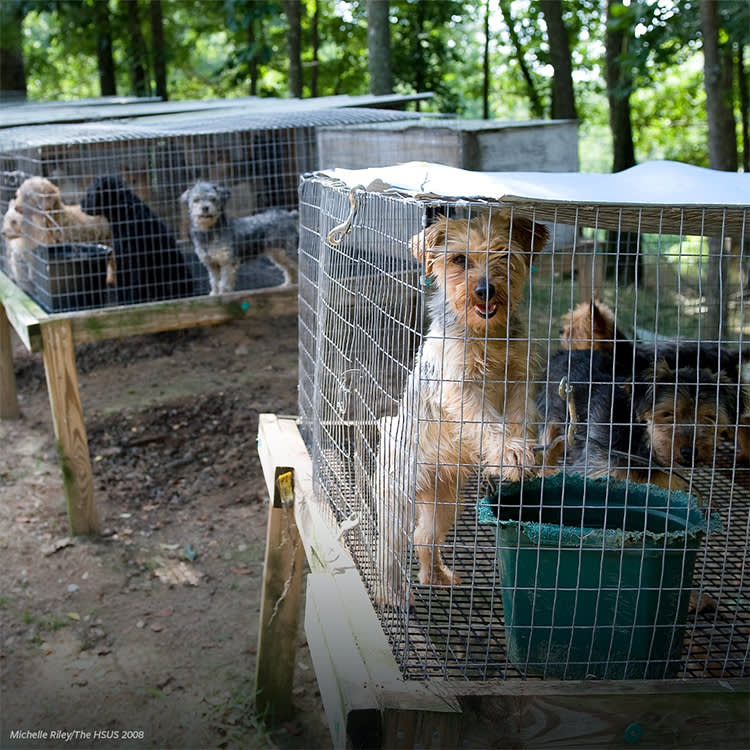
share article
For years, the Department of Veteran Affairs (VA) has been conducting experiments on animals — a fact that many taxpayers may not be aware of. In 2021, the agency admitted to congress that they had spent nearly five million dollars of taxpayer money on animal testing in just one of their multiple research facilities. Finally, Congress has stepped in to put an end to these experiments; by 2026, all experiments on dogs, cats, and primates by the VA will be ended.
New legislation
The new legislation is part of the VA’s latest spending bill, which outlines the department’s budget in 2024. “I am proud to say that the Department of Veterans Affairs will be eliminating the use of research on animals within the next two years. We’re pushing the VA to find other scientific methods to conduct vital research and eliminate harmful testing on animals,” said Representative Debbie Wasserman at a House subcommittee hearing.
The White Coat Waste Projectopens in a new tab, an organization dedicated to ending government-funded animal testing, told Stars and Stripesopens in a new tab that the VA “has active proposals for conducting taxpayer-funded animal experiments at 98 different VA facilities across the U.S.”
As part of the spending bill, the VA is ordered to “implement a plan under which the VA secretary will eliminate research conducted using canines, felines, or non-human primates not later than two years after the date of enactment of this act.” They must also allow inspections of their testing facilities from the U.S. Department of Agriculture and submit reports on animal experiments to Congress.
The Department of Veteran Affairs history of animal testing
The White Coat Waste Projectopens in a new tab has been tirelessly raising awareness for the Department of Veteran Affairs animal experiments for years. In 2021, they sued the Department of Veteran Affairs to gain access to photos and documents related to the animal testing after finding out that the VA was conducting experiments on cats in at least three facilities.
“These are healthy cats who are purchased from commercial breeders by the VA with our tax dollars, brought into the laboratory, locked in a tiny cage, mutilated, tortured, have chemicals injected into them, asphyxiated and then are killed and dissected,” Justin Goodman, vice president of advocacy and public policy at the White Coat Waste Project, told CBSopens in a new tab.
Dogs and primates have also been victims of the VA’s experiments. On their website, the VA explains, “VA is committed to conducting research that is needed to improve medical treatment and provide hope for Veterans and their families. It is often necessary to work with animal models to provide the treatments and cures that the public demands to relieve their suffering.”
But experts, including Madeline Bernstein, president of the L.A. chapter of the Society for the Prevention of Cruelty to Animals, disagree. “The studies that are done on a cat’s brain, most medical experts say will not replicate in the human brain,” Bernstein told CBS.
Some veterans, including the 501(c)3 veterans charity AMVETS, have spoken out against the researchopens in a new tab. In a letter to Congress, AMVETS explained that canine research has wasted money and “left wounded and disabled veterans with fading hope by failing to produce significant breakthroughs over the last few decades.”
While the new legislation is a great step toward reducing government spending on animal testing, there is still work to be done. The White Coat Waste Projectopens in a new tab details ways that you can contact Congress to urge them to stop spending on various other animal experimentation facilities in and outside of the U.S. You can also donate to the White Coat Waste Project to support their advocacy.

Sio Hornbuckle
Sio Hornbuckle is a writer living in New York City with their cat, Toni Collette.
Related articles
![A woman with a dog on her lap sitting at a desk with a laptop.]() opens in a new tab
opens in a new tabWhat Happens After You Sign a Petition Anyway?
Three animal rights attorneys on what it takes to ban puppy mills and other ways to get involved in animal advocacy.
![A brunette woman holding a black dog with a blue collar, she is wearing headphones and a microphone attachment while seated in a plane with the clouds and sky showing through the window]() opens in a new tab
opens in a new tabPilots to the Rescue Has Flown Nearly 400 Animals to Safety This Year
With the help of flight, this nonprofit is saving animals and relocating them to loving homes across the country.
![Four beagles placed in a rescue cage.]() opens in a new tab
opens in a new tab4,000 Beagles Rescued From a Research Facility Need Homes
It’s one paw in front of the other for these dogs as they adjust to life in safe homes.
![anonymous woman pampering and taking care about a small ginger kitten]() opens in a new tab
opens in a new tab6 Ways to Help Local Shelters Without Committing to Full-Time Pet Parenthood
Adoption isn’t for everyone—here are other ways you can be there for animals in need.
![Couple hugging their pit bull]() opens in a new tab
opens in a new tabThe Good Fight: New York Takes Steps to Squash Breed-Specific Legislation
Under the new animal-welfare laws, insurers will no longer be able to discriminate against pet parents of certain dog breeds.
